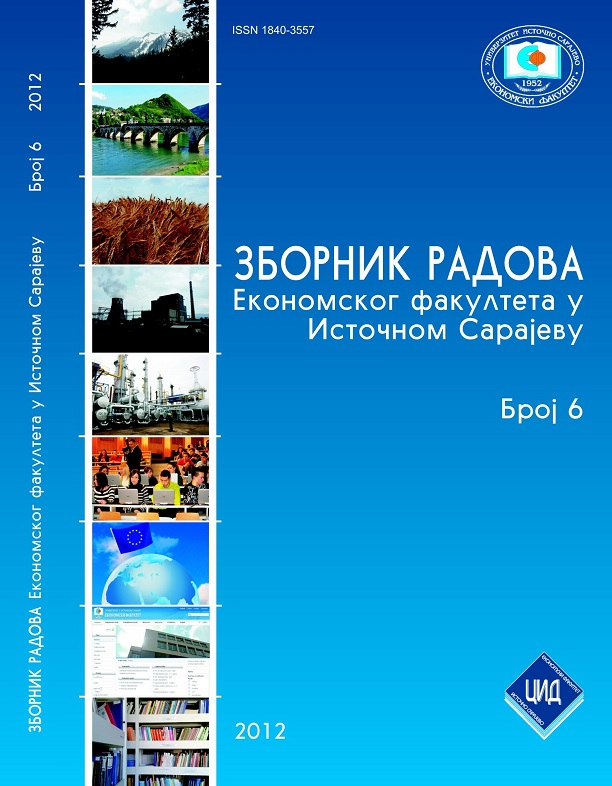ASSESSMENT OF TRANSITION IN THE YUGOSLAV SUCCESSOR STATES
DOI:
https://doi.org/10.7251/ZREFIS1206017MAbstract
This paper will assess the results of transition in the Yugoslav successor states using objective and subjective criteria. Four objective criteria related to economic growth will be used to compare economic performance in Yugoslavia and its successor states; 1. Speed of recovery after war/change in system, 2. Absolute growth rates, 3. Relative growth rates, 4. Place in world development. This will be supplemented by a survey of public opinion conducted by the European Bank for Reconstruction and Development.
All the four objective criteria show that the Yugoslav economy performed much better than the economies of its successor states. The survey shows that only 20 percent of population are happy with the results of transition in South Eastern European countries, while 64 percent are unhappy and 16 percent are undecided. In the former Yugoslavia much less than 20 percent of population are happy with the changes brought by the transition.Downloads
Published
2012-10-19
Issue
Section
Чланци

